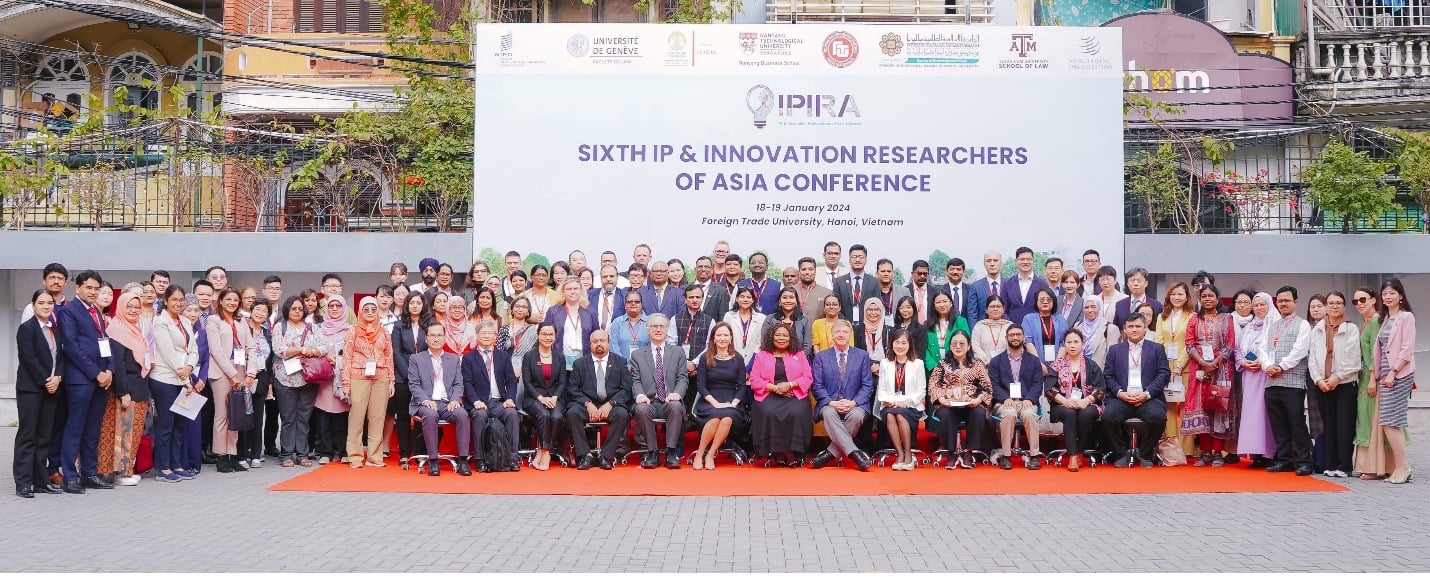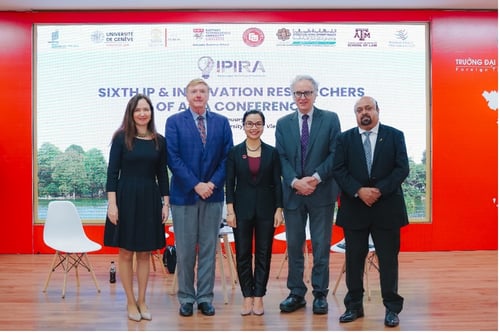
Texas A&M Law, under the coordination of professor Irene Calboli, co-hosted the Sixth IP & Innovation Researchers of Asia Conference (IPIRA) on January 18-19 in Hanoi, Vietnam.
The conference was held at Foreign Trade University in collaboration with the IPIRA Network, the World Intellectual Property Organization (WIPO) Academy, the World Trade Organization (WTO), the International Islamic University Malaysia, Nanyang Technological University, Universitas Indonesia, Texas A&M University, and the University of Geneva.
The IPIRA Conference was co-founded by Professor Calboli in 2019 and offers a forum for IP academics to discuss research with peers and policy makers from around the world. Academics participated from institutions across Asia and the Pacific, Europe, Africa, and the Americas again served on the Scientific Committee of the Conference.
Three keynotes spoke at the conference. Nguyen Van Bay, Deputy Director General of the IP Office of Vietnam, opened the conference with a discussion on the current IP System of Vietnam and the office’s work toward future policy options. Hasan Kleib, WIPO Deputy Director General of the Regional and National Development Sector, discussed WIPO capacity building and knowledge transfer. Johanna Hill, WTO Deputy Director General, highlighted the need to rethink the links between trade, development, and the IP system today.

The conference included parallel sessions where presenters IP and health care, sustainability, artificial intelligence, patents, biotechnology, geographical indications, and IP management. It also featured two plenary sessions organized by Texas A&M Law alumnae Megan Pharis, Katie Kruisselbrink, and Madison Kuczynski. The first plenary session focused on how IP should be rethought in a digital world. The second session focused on the role of IP in promoting sustainability and a circular economy and included a research presentation by Professor Calboli.
The Seventh IPIRA Conference is slated for 2025, with a full announcement in September 2024.